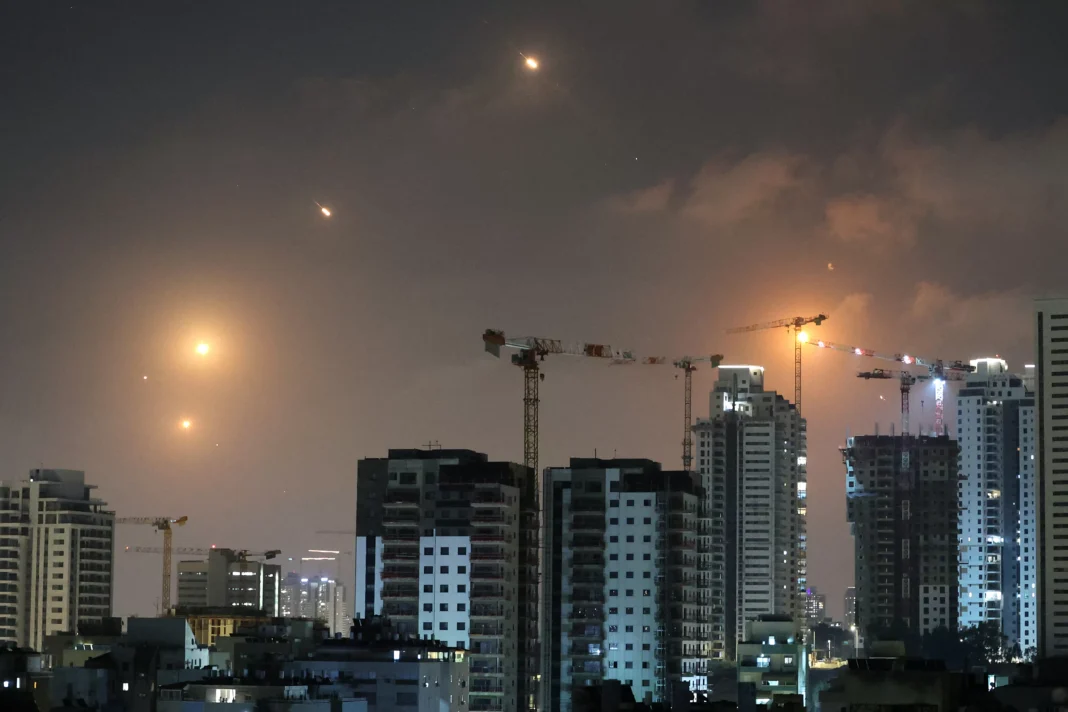Israel Strikes Key Iranian Nuclear Sites to Stop Bomb Development Amid Rising Tensions
In an unprecedented move, Israel has launched a series of airstrikes on key Iranian nuclear sites in an effort to curb the development of nuclear weapons. This move comes amid rapid uranium enrichment by Iran and rising tensions in the region.
The strikes, which took place in the early hours of the morning, targeted several facilities in and around the city of Natanz, where Iran has been enriching uranium at an alarming rate. This action by Israel is a clear message to Iran that it will not tolerate the development of nuclear weapons, which pose a significant threat to the entire world.
The decision to strike was not taken lightly by Israel, but it was a necessary step to prevent Iran from obtaining the capability to produce nuclear weapons. The Israeli government has repeatedly expressed its concerns over Iran’s aggressive nuclear program and has warned that it will take all necessary actions to prevent Iran from acquiring nuclear weapons.
The airstrikes were a carefully planned and executed operation, with the Israeli Air Force targeting specific facilities that are crucial to Iran’s nuclear program. The strikes have significantly damaged these facilities, making it difficult for Iran to continue its nuclear activities.
The timing of these strikes is crucial, as Iran has been rapidly enriching uranium in recent months, breaching the limits set by the 2015 nuclear deal. This has raised concerns among the international community about Iran’s intentions and has led to heightened tensions in the region. The strikes by Israel serve as a strong message to Iran that its actions will not go unnoticed and that there will be consequences for its continued pursuit of nuclear weapons.
The Israeli government has made it clear that it has no intention of engaging in a full-scale war with Iran. The strikes were a targeted and precise operation, aimed at preventing Iran from developing nuclear weapons. Israel has always maintained that it will do everything in its power to protect its citizens and the region from the threat of a nuclear-armed Iran.
The strikes have been met with mixed reactions from the international community. While some have expressed concern over the escalation of tensions in the region, others have praised Israel’s actions as a necessary step to prevent Iran from obtaining nuclear weapons.
The United States has expressed its support for Israel’s right to defend itself and its citizens. In a statement, the White House said, “The United States fully supports Israel’s right to defend itself against the Iranian regime’s aggressive actions in the region. We will continue to stand with our ally Israel and will not allow Iran to threaten the stability and security of the Middle East.”
The European Union has also condemned Iran’s actions and has called for a de-escalation of tensions in the region. The EU foreign policy chief, Josep Borrell, stated, “We strongly condemn any action that could jeopardize regional peace and stability and call for a de-escalation of tensions.”
Israel’s strike on the Iranian nuclear sites has once again highlighted the ongoing threat posed by Iran’s nuclear program. It has also underlined the need for the international community to take decisive action to prevent Iran from obtaining nuclear weapons.
The Israeli government has stated that it is ready to take further action, if necessary, to protect its citizens and the region from the threat of a nuclear-armed Iran. However, it is hoped that these strikes will serve as a strong deterrent to Iran and that it will reconsider its aggressive pursuit of nuclear weapons.
In conclusion, Israel’s strike on key Iranian nuclear sites is a necessary and justified action to prevent Iran from developing nuclear weapons. It is a clear message to Iran that its actions will not go unpunished and that the international community will not allow it to pose a threat to global security. It is now up to Iran to heed this warning and take steps towards de-escalation and cooperation with the international community.



